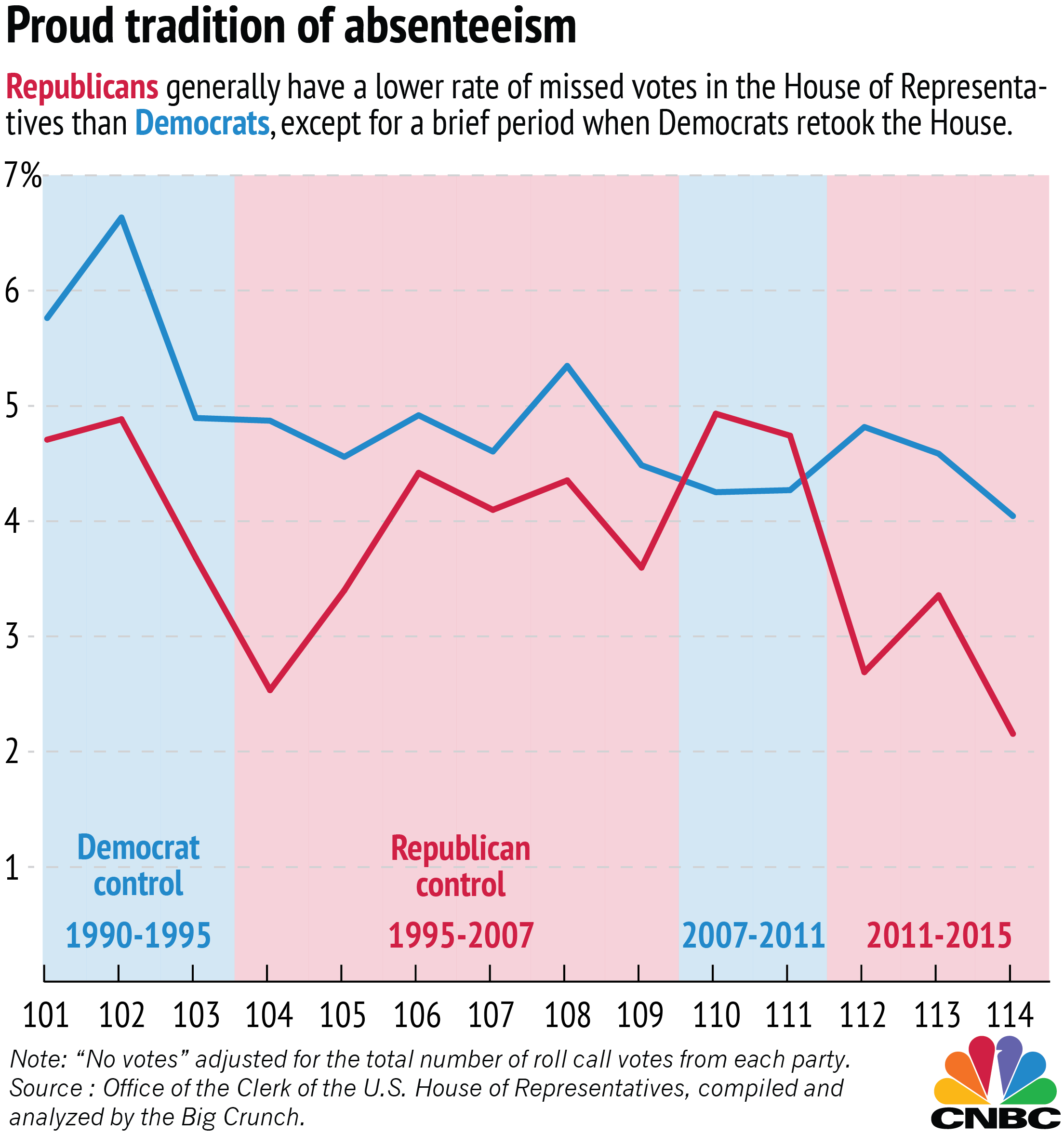Republican Sen. Marco Rubio may be catching flak for missing so many Senate votes, but it's House Democrats that seem to have the most trouble showing up for work.
The Big Crunch pulled the voting records for the last 25 years and found that Democrats in the House of Representatives tend to miss votes more often than their colleagues across the aisle (even voting "present" was enough for a representative to get credit for being there).
In the past year, 70 percent of Republicans showed up to vote for the vast majority of the more than 500 roll calls, while only 39 percent of Democrats had such solid voting records. And out of the 50 representatives with the worst absentee records, all but 16 were Democrats, despite the fact that Republicans hold the majority in the House.










